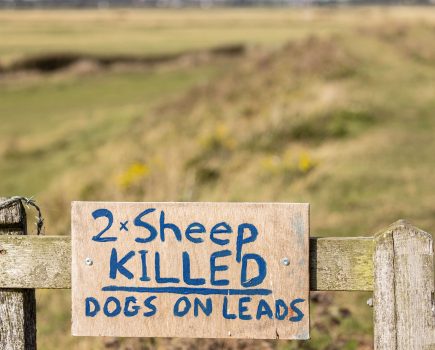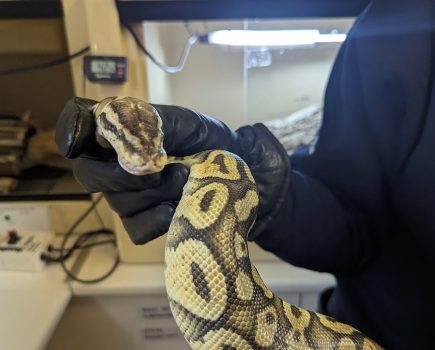AUG 20, 2013: Fancy embarking on the ‘good life’ in the city? Liz Shankland meets a vicar and his family doing just that
AUG 20, 2013: Fancy embarking on the ‘good life’ in the city? Liz Shankland meets a vicar and his family doing just that When Steve Paynter – pictured – took up his post as vicar of a church in London, he was fortunate that the job came with a large family house and an extensive garden – perfect for his four lively sons. However, that was 14 years ago. If you visit now, you won’t simply find grounds full of mature trees and shrubs – you’ll find a productive smallholding, complete with a large allotment, 21 chickens, two beehives, and even pigs. And all this can be found in the busy suburb of Ealing – just 20 minutes from the heart of the English capital! The venture began in earnest just a few years ago, and the driving force behind it was Steve and Jennie Paynter’s eldest son, Jono, now aged 24. “We moved here from Farnborough, when my dad became the vicar of St Mary’s Church,” he explained. “I had always loved animals, so we had a few pets, including a pet rabbit and two ferrets.” “About four years ago, we got our first chickens. It was great having our own eggs, and we hatched our own chicks, too, but it got to the stage where I wanted to go a bit further. I’m a big fan of Hugh Fearnley-Whittingstall and I watched all his programmes, as well as other series such as Jimmy’s Farm. Watching what they were doing, producing their own home-grown meat, made me want to do the same. “I really fancied keeping pigs but, at first, dad said a very definite ‘No’, so I had to find a way to convince him it was a good idea. So my brothers and I decided to blitz one area of garden that was completely overgrown to persuade dad that we were serious about it all. We cleared it all out and I did lots of research about pigs so that I knew what was needed. Eventually, dad agreed it was a good idea.” The first pigs – two Gloucestershire Old Spots weaners sourced from a farm shop in Oxford – arrived in May last year, and it wasn’t long before the family discovered how good pigs were at escaping through insecure fencing. “I knew, from my research, that it was best to dig the fence wire down into the ground, so we did that, but we couldn’t tension the wire properly, because we didn’t have the equipment that fencing contractors use,” Jono remembered. “The pigs dug down and squeezed underneath the wire and got out! They were incredibly excited, galloping around all over the place and looking so contented as they explored new parts of the garden. Getting them back wasn’t a problem, though. All we had to do was get a bowl of food and they trotted right back.” The pigs reached pork weight last October and, as abattoirs aren’t too plentiful in London, they had to be taken to one near Oxford – a journey of an hour and a quarter away. Not surprisingly, all the family members were delighted with the quality of the pork – so much so that two British Saddleback weaners have now been acquired. This time, five other people are sharing the cost of raising the pigs and looking forward to tasting the meat. Jono’s father Steve has no doubt he made the right decision in giving in to his persuasive son. “The pork was absolutely superb, and raising pigs has been a great experience in itself,” he said. “We have gained a renewed interest in the systems of the natural world which sustains us. As a Christian family, we are all deeply concerned about the welfare of animals and we believe we should all have a love and a respect for all of God’s creations. “Some of the intensive farming techniques used in other parts of the world are shocking and terribly cruel, but raising animals ourselves, we can feel satisfied that they have had a good life. That certainly adds to the pleasure of eating.” • Jono Paynter is happy to talk to offer advice to anyone thinking of embarking on an urban smallholding venture. He can be contacted by emailing jono_paynter@hotmail.co.uk Setting up an urban smallholding Check your house deeds Make sure there is no restrictive covenant on the property preventing occupiers from keeping certain livestock. A surprising number of people have found disappointment in the small print. Covenants can occasionally be lifted, but you may need professional help. Notifying neighbours There is no legal obligation to tell your neighbours what you are planning, but it might be courteous and helpful to do so. It’s a bit like warning next door that you plan to build an extension – better to tell them yourself than let them find out via another source and give them reason to complain. Although their smallholding is in a residential location, the Paynters had few worries about the sounds or smells from their animals annoying neighbours because the area of their garden devoted to livestock is bounded by the family allotment, a school, and a churchyard. However, not everyone is that fortunate, so do all you can to avoid a neighbours’ dispute. Get your land registered Registering a piece of land as an agricultural holding is the same whether you live in an urban or a rural area. If you live in England, Scotland, or Wales, and you want to keep four-legged livestock, you will need a County Parish Holding number (CPH). It doesn’t cost anything. In England, contact the Rural Payments Agency, in Scotland it’s the Rural Payments and Inspections Department, while in Wales, it’s the appropriate divisional office of the Welsh Assembly Government. Identifying your livestock Once you get your animals, you will also need a flock and/or a herd number (depending on what species you want to keep) from the Animal Health and Veterinary Laboratories Agency. You will use these numbers on movement licences and on ear tags every time you move your livestock to another location or take them to slaughter. Ireland does not use CPH numbers, but you will need a flock/herd number. In Northern Ireland, numbers can be obtained from the Department of Agriculture and Rural Development; in the Republic of Ireland, contact the Department of Agriculture, Food and the Marine. Don’t be too ambitious The Paynters thought out their pig-keeping venture extremely well, working out what they could accommodate and preparing an area before their arrival. They bought in May to avoid having to keep them through the worst of the winter weather. Even so, their ground got extremely churned up in the process and had to be rested before the next two arrived. It’s important to have a Plan B, should your land become too muddy and unmanageable. Always have second area – or a large shed or outbuilding – to which your livestock can be moved. Think about the end If you have plans to raise animals for meat, remember that. Don’t get too attached and locate an abattoir well in advance of the planned slaughter date. Even in rural areas, abattoirs are becoming increasingly rare, and some of the larger ones only deal with major producers, refusing to handle just a few occasional animals reared by individuals.







